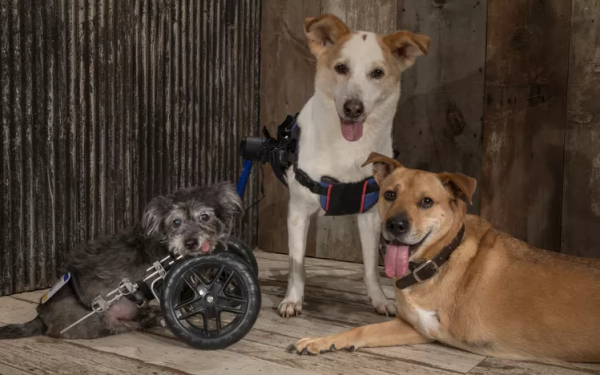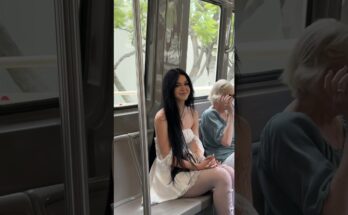Domenick Scudera visits the Bryn Mawr Rehab Hospital almost every week. He’s done so since 2010, bringing along one of his three dogs, each of whom is a therapy dog.
Animal-assisted therapy is nothing new, but the hospital is home to the Amputee Treatment and Rehabilitation Program—and each of Scudera’s dogs only has two legs. With Scudera’s help, Cyrus, Lucky, and Deuce have lived fun, loving lives, showing what’s possible to the humans they visit.
“It’s wonderful, and it’s almost always the same,” Scudera tells Daily Paws. “People will say the same thing. They’ll say, ‘If he can do it, I can do it.’ They say that to me all the time.”
Like some of the patients they visit, Lucky, with only front legs, and Deuce, who only has legs on his right side, endured horrific accidents that led to invasive surgeries. (Cyrus, the trio’s elder statesman, has only back legs.) Years later, they’re providing comfort and inspiration.
Kathleen Liebsch, an occupational therapist at Bryn Mawr, once witnessed Deuce visit her patient who’d lost a leg and an arm on the same side. He identified with the small brown dog who walks unassisted without legs on his left side.
“I’m working towards that, too,” he told Liebsch.
“It was pretty inspiring,” she remembers.
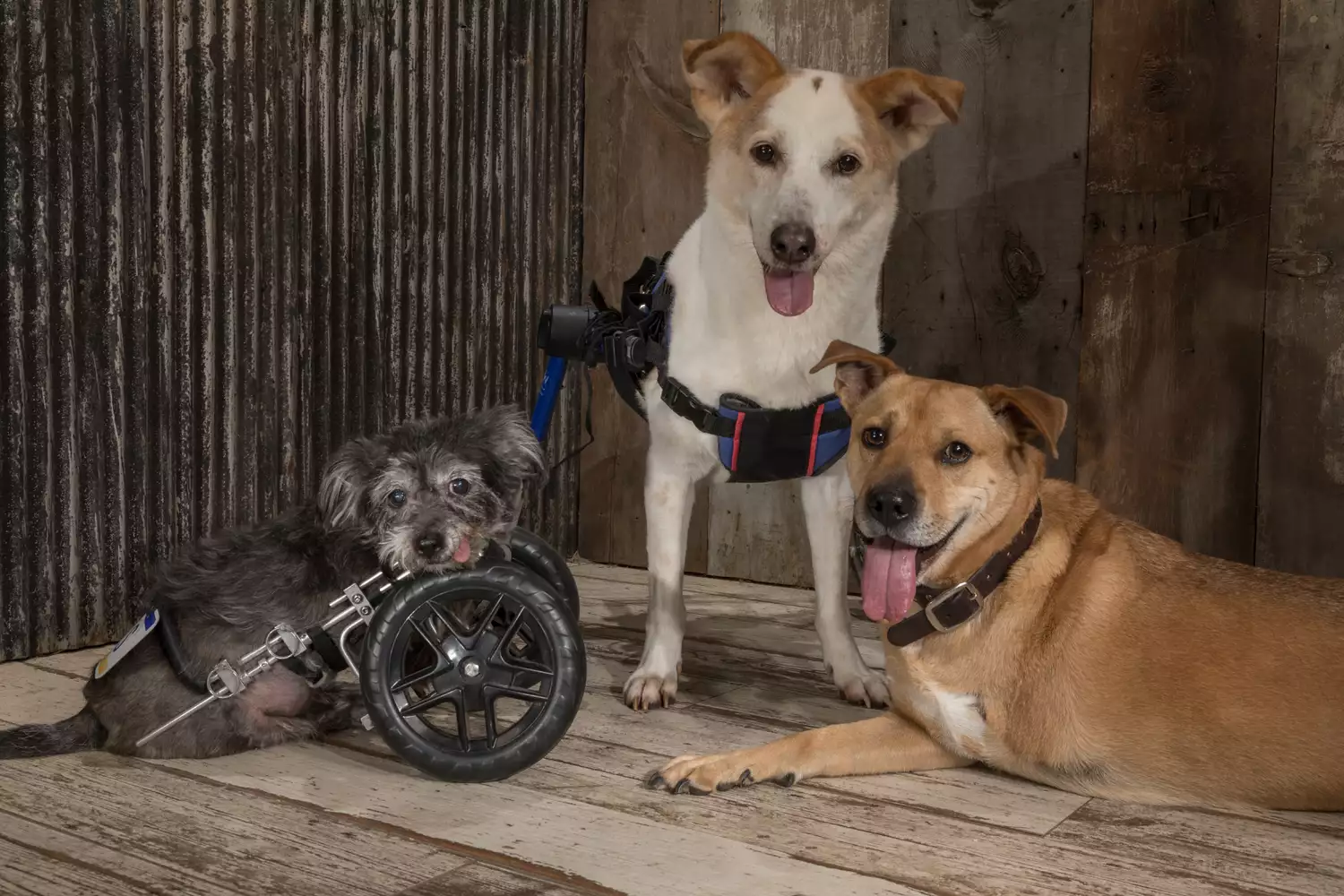
The Trio’s Origin Story
About 12 years ago, Scudera, a theater professor at Ursinus College outside Philadelphia, owned Festus, a three-legged dog. He was also a therapy dog, visiting patients at Bryn Mawr and the Children’s Hospital of Philadelphia.
As Festus aged, Scudera began looking for another dog. This pup would also be trained as a therapy dog, and Scudera was searching for one who didn’t have four legs because he knew how much it meant to patients to see disabled dogs living healthy lives.
He saw scruffy Cyrus online after the small terrier mix had been abandoned at an animal shelter. Soon, Scudera flew to California to adopt the little guy.
Now Scudera is easily identified as the foremost two-legged dog dad. Lucky, who’s roughly 8, came from Egypt. A local named Marwa Elgebaly found him on a Cairo street after he was likely hit by a car. Deuce, about 5, was found in a Kentucky ditch with his left legs broken and infected. (X-rays revealed shrapnel, so he may have been shot, though Scudera will never know the true cause of his injuries.)
At home, the three dogs are like normal pets, each with their own personalities. Old man Cryus is the Velcro dog who likes when Scudera carries him like a football and dislikes when his dad steps outside to answer questions from a Daily Paws editor. (Sorry.)
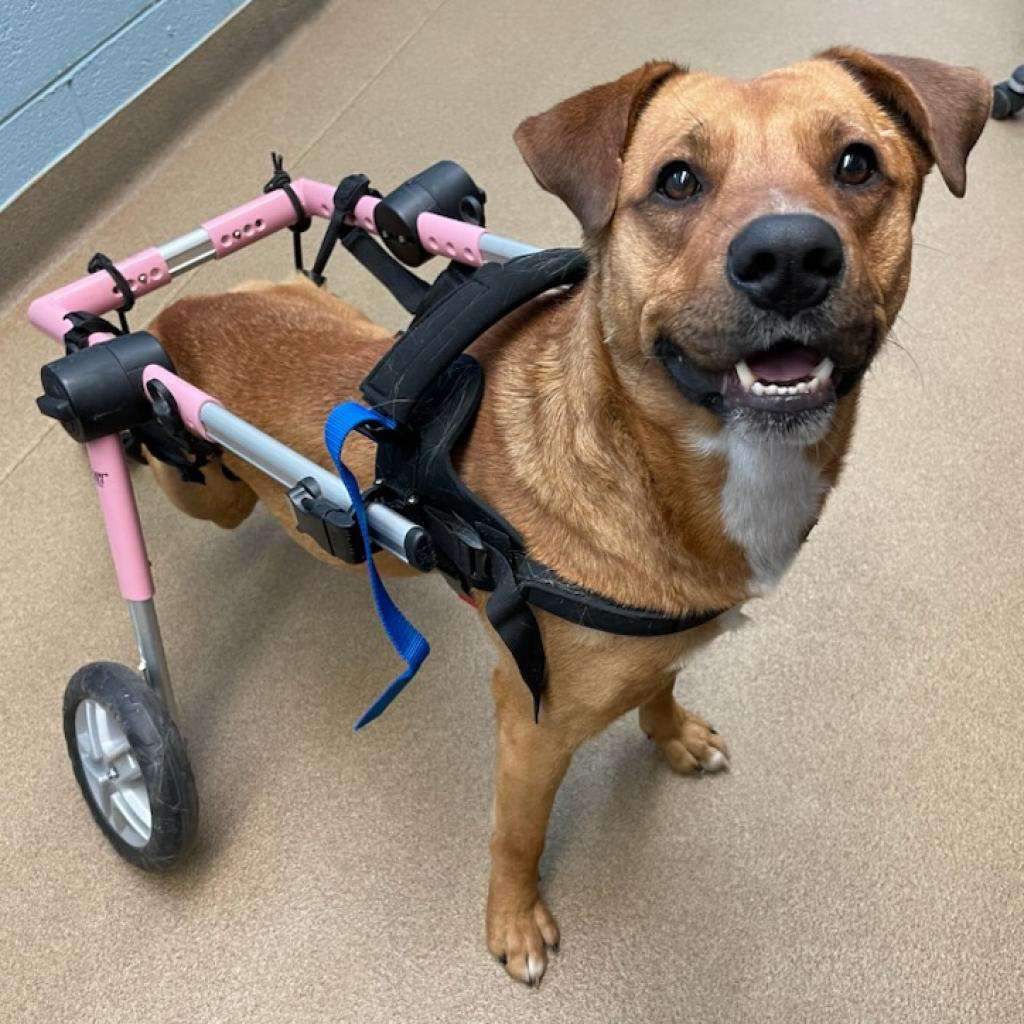
Lucky almost never runs out of energy, so much so that one of Scudera’s friends says having two legs is the least of his problems. He loves to move around and investigate everything. His best bud, Deuce, is calm, gentle, and more willing to sit when he’s told.
He also—impressively—walks without issue. His gait is so unaltered that people don’t always notice that he has only two legs, Scudera says.
To him, caring for his trio hasn’t been all that different than looking after typical four-legged dogs. The main distinction, in his eyes, is how he has to help Lucky go to the bathroom because he can’t feel anything from the waist down. But that’s just part of the routine now.
“Disabled dogs are difficult to place, but if you adopt one, the rewards of having a dog that’s different are so great,” Scudera says. “You gain so much by having a dog that’s different.”
Like most dog owners, he receives daily love and joy from his pups. But there’s a social aspect, too. They’re each celebrities on walks, with people stopping to meet them and talk with Scudera.
“It kind of engages me with the world a little more,” he says.
‘Full of Happiness’
Then there’s the important work they do at the hospital. Liebsch, who oversees a separate therapy dog program at Bryn Mawr, says patients really appreciate seeing a dog in the rehabilitation setting. They’re often there for weeks or months—away from their own animals.
“Dogs are just full of happiness,” she says. “… That might be the highlight of their day.”
Scudera’s dogs no doubt fit that description. Once, a patient who’d lost both his legs simply wrapped his arms around one of the dogs (Scudera can’t remember which one) and sat like that for a long time, clearly enjoying a sense of relief while not saying anything.
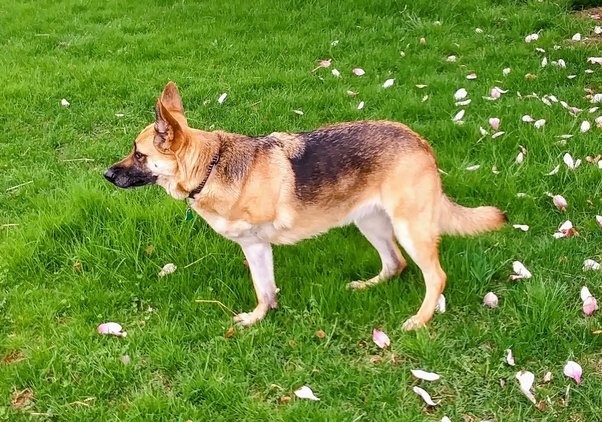
Cyrus would also accompany Scudera to the children’s hospital, where they visited a nonspeaking child. At one visit, the kiddo had been given a talking keyboard so he could vocalize his thoughts.
“He keyed in something like, ‘I love Cyrus,'” Scudera says.
His dogs don’t just make a difference with the patients either. He’s received messages from other inspired people who’ve decided to adopt dogs like his. It warms his heart.
“I hate to think that there’s dogs that are in need somewhere and no one wants them.”
